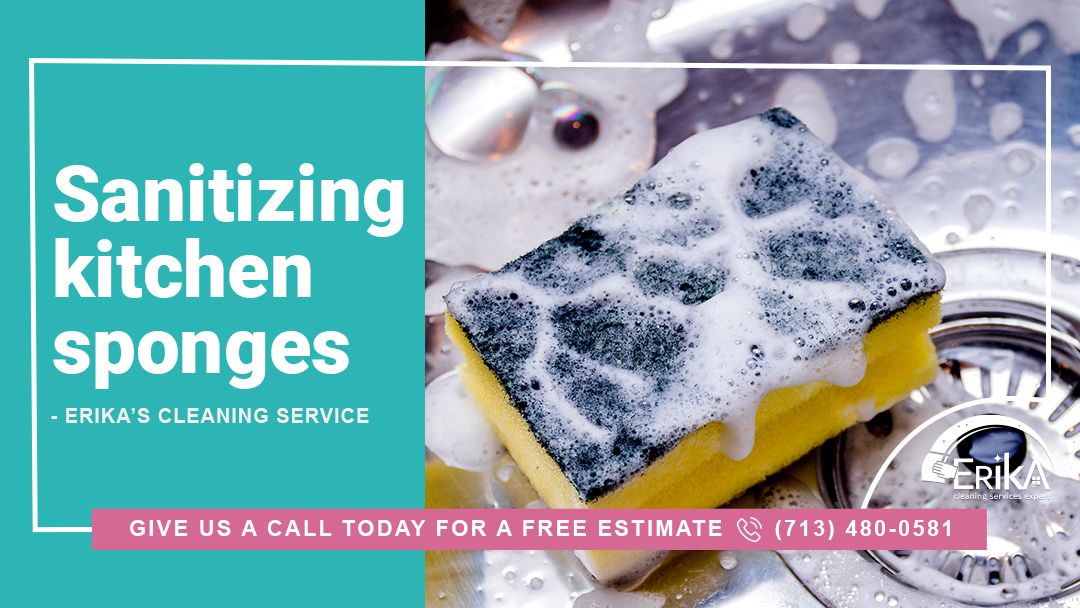Sanitizing kitchen sponges
Sponges can spread harmful bacterial all over'' your kitchen. To prevent your sponges from spreading germs you need to sanitize them.
The problem with sponges is that they don’t dry out between uses and the moisture helps harmful bacteria multiply. A sponge can be cleaned and sanitized safely if you follow some guidelines. To clean and sanitize a sponge you can do one of three ways. You can use your microwave, dishwasher or a sanitizing solution.
To sanitize sponges in your microwave follow these simple rules:
- First, sponges that have metallic scrub pads should not be disinfected/sanitized in the microwave, but can be placed in a dishwasher for cleaning and sanitizing.
- Make sure the sponge is completely wet. Being wet is essential because otherwise the sponge could catch fire in the microwave.
- Put the wet sponge in the microwave for one minute on high. One minute of microwaving is sufficient to kill bacteria.
- Be careful when removing the sponge from the microwave, because it will be hot. You may want to set a timer for 10-15 minutes and then take the sponge out of the microwave when it has cooled.
Another way to clean and sanitize your sponges is to use your dishwasher, but once again there are some rules to follow:
- Use the hottest and longest cycle on your dishwasher
- Use the dry cycle
According to the United State Department of Agriculture (USDA) microwaving sponges kills 99.99999 percent of bacteria present on them, while dishwashing kills 99.9998 percent of bacteria.
A third way to sanitize your sponges:
- Use a solution of one-quarter to one-half of a teaspoon of concentrated bleach (8.25 percent sodium hypochlorite) per quart of warm, not hot water.
- Soak the sponge for one minute.
When you need to wipe up raw juices from meats, which can be particularly high in bacteria, instead of using your sponge or dishcloth, use clean paper towels and throw them away. Then sanitize your counters with the one-quarter to one-half teaspoon of concentrated chlorine bleach in one quart of water. Spray this solution on the counters and let dry or wipe it on with a clean cloth and let the counters air dry.
If you use dishcloths Michigan State University Extension recommends that you use a clean dishcloth each day. When dishcloths or sponges smell bad it is because of all the bacteria in them.
Keeping your dishcloth or sponge as clean as possible helps to keep your kitchen clean and in the long run, also helps to keep you and your family healthy.
 (713) 480-0581
(713) 480-0581
 Rosenberg, TX 77469
Rosenberg, TX 77469

This email address is being protected from spambots. You need JavaScript enabled to view it.
Source: Michigan State University
In Erika's Cleaning Services, we have built our house cleaning service on trust and satisfaction. When we clean your home, we will treat it with the utmost care and respect. Our excellent references speak for themselves. We have been providing professional house cleaning services to many satisfied customers for many years.

 Houses
Houses Apartments
Apartments Move In - Move Out
Move In - Move Out Post Construction
Post Construction Offices
Offices Maintenance Building
Maintenance Building Schools
Schools Retail
Retail Post Construction
Post Construction







